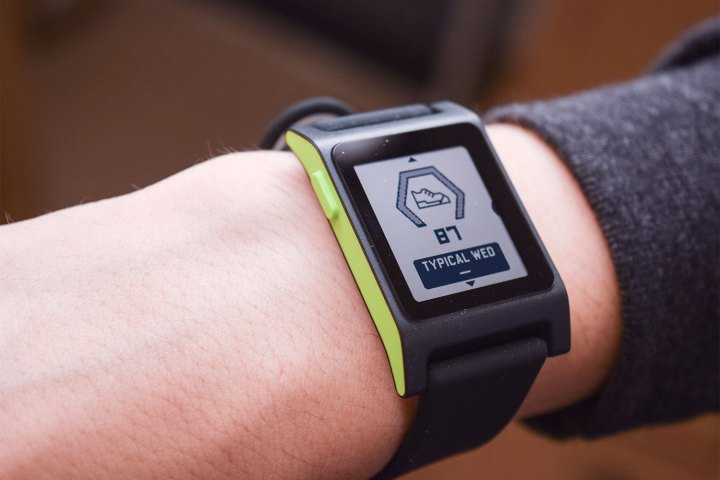
“To be clear, no one on this freshly formed team seeks to brick Pebble watches in active service,” wrote Jon Barlow, a developer advocate at Fitbit. “The Pebble SDK, CloudPebble, Timeline APIs, firmware availability, mobile apps, developer portal and Pebble app store are all elements of the Pebble ecosystem that will remain in service at this time.”
That won’t be the case for all of Pebble’s apps and services. The company is “evaluating” the possibility of migrating server-side features like voice dictation, messaging, and weather, and it’s working to reduce third-party apps’ dependence on third-party services such as authentication and analytics. Some, like Pebble Health, will work normally for the time being.
“The mobile app updates will ensure the operation of core Pebble functions, even with cloud services discontinued — they won’t break functionality,” Barlow wrote. “After this update, Pebble Health will continue to work as it does today.”
Pebble’s hardware isn’t so lucky. The firm said earlier that warranty support would no longer be offered for Pebble watches, and that “functionality” and “service quality” would be reduced in the future. And it announced that production forthcoming Pebble 2 and Pebble Core, which completed successful Kickstarter campaigns earlier this year, would be canceled. (Pebble 2 customers will receive a full refund within four to eight weeks.)
As part of Fitbit’s deal to acquire the beleaguered smartwatch manufacturer, the activity-tracking company said it would acquire assets, personnel, and intellectual property related to software. About 60 percent of Pebble’s employees will not be offered jobs at Fitbit, Bloomberg reported earlier this week, and Pebble CEO Eric Migicosky is expected to join tech startup accelerator Y Combinator.
It’s Fitbit’s second major purchase this year. In May, it acquired payments startup Coin so it could add an “active payment solution” to its own wearable devices.
It hopes to leverage the tech for future wearables. In an interview with The Verge earlier this week, Fitbit CEO James Park said that the company wants to “take a different approach” and build a ground-up software solution to compete with Google’s Android Wear and Apples WatchOS operating systems.
Fitbit has had a trying year. The company was hit with class action lawsuits by customers alleging that its bands’ premiere features, including sleep tracking, heart rate monitoring, were sometimes “faulty” and “inaccurate.” And it struggled to ramp up production of the Flex 2, the clip-on wearable the company launched in August. Those problems, in tandem with a 45-percent contraction in growth in Asia-Pacific markets, drove the fitness firm’s third-quarter earnings to unexpected lows. It reported earnings of $504 million, $3 million under Wall Street’s projections, and gave weak guidance for its upcoming quarter.
News of Fitbit’s travails sent the company’s shares plummeting 30 percent earlier this year. Shares have lost 5 percent since reports of the Pebble acquisition emerged late last week.


